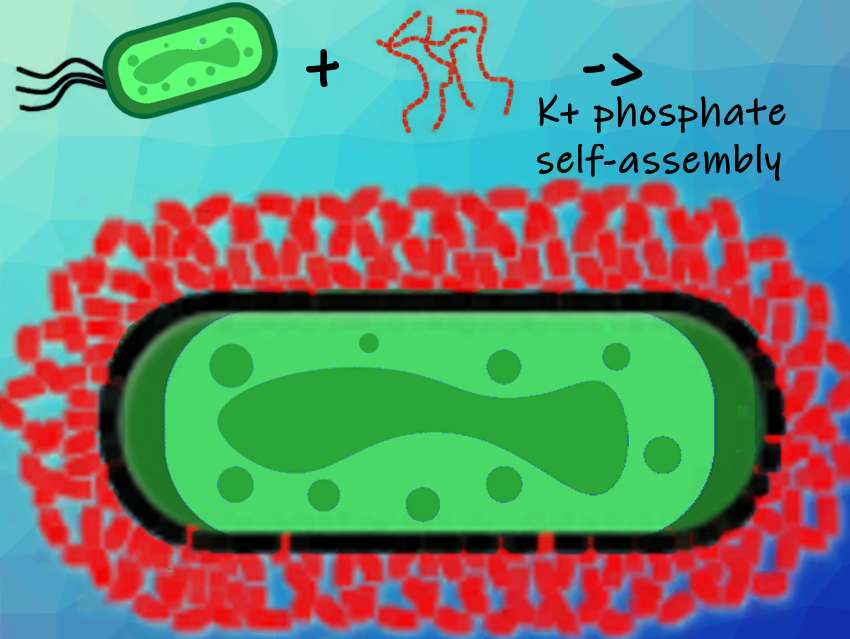The gut microbiota, a diverse spectrum of symbiotic bacteria and other microorganisms that inhabit the gastrointestinal tract, is an important regulator of human health. Disturbances in the gut microbiota can result, e.g., in inflammatory bowel disease, obesity, Alzheimer’s disease, diabetes, or cancer. Oral microecologics can intervene directly in the gut microbiome, are non-invasive, and have low side effects. Unfortunately, oral delivery of microecologics has been restricted by low bioavailability resulted from environmental insults such as low pH and digestive enzymes in the stomach.
Yan Pang, Jinyao Liu, and colleagues, Shanghai Jiao Tong University, China, have coated probiotics with a therapeutic nanocoating to synergistically enhance the biotherapy. The scientists were inspired in their work by the robust protective and therapeutic efficacy of the silkworm cocoon: By transitioning from a random coil to a β-sheet conformation, silk fibroin can self-assemble onto the surface of bacteria. The researchers obtained a complete nanocoating with a nearly quantitative coating ratio by using a simple layer-by-layer procedure. Bacterial viability was almost unaffected, was no organic solvents and other chemical reagents were used.
The team chose an FDA approved probiotic of EcN. Escherichia coli Nissle 1917 (EcN) has been used as a typical probiotic for inhibiting pathogens invasion, restoring intestinal epithelial barrier, and enhancing immune-modulation. To coat EcN, silk fibroin was prepared by extraction from cocoons. The layer-by-layer deposition procedure was conducted under a cytocompatible condition by simply shaking EcN suspension with 0.1 weight% silk fibroin and subsequently in 0.1 m K+ phosphate buffer (pH 5.5) to stabilize the formed coating by a salting-out process. Silk fibroin was labeled by fluorescein isothiocyanate (FITC) to facilitate the detection of the coating.
The researchers observed that the bacteria coated in this way showed significantly enhanced survival against gastric insults due to the silk fibroin nanocoating. Moreover, the therapeutic effect was synergistically enhanced in a mouse model of intestinal mucosal inflammation. The researchers see their findings as an alternative for improving the bioavailability and treatment efficacy of oral microecologics.
- Decorating Bacteria with a Therapeutic Nanocoating for Synergistically Enhanced Biotherapy,
Weiliang Hou, Juanjuan Li, Zhenping Cao, Sisi Lin, Chao Pan, Yan Pang, Jinyao Liu,
Small 2021.
https://doi.org/10.1002/smll.202101810


